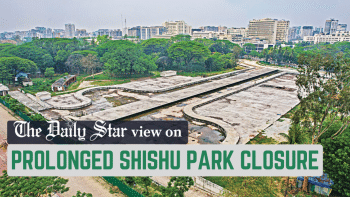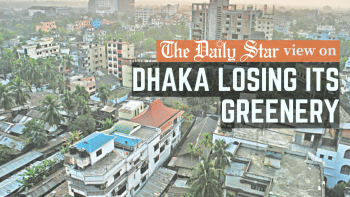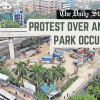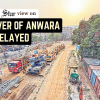Leave Anwara Park alone

It is refreshing to see a city authority take a hard stance against another government agency to protect a park from being turned into a commercial space. According to a report by this daily, the Dhaka metro rail authorities intend to construct a shopping complex or station plaza on the land of Anwara Park in Farmgate. But the Dhaka North City Corporation (DNCC) has intervened on time, with the mayor making it clear that the space must be returned to the public as a park. We commend the DNCC for its commitment to preserving what little open space is left in the city.
Located in one of the busiest areas in Dhaka, Anwara Park used to provide breathing space to visitors and local residents, especially children. However, since the end of 2018, the metro rail authorities have been occupying it for storing construction materials and other purposes. Even though the construction of the rail line through Farmgate has long been over, they are still occupying it. On top of that, they decided to use it for commercial purposes despite previously promising to return it as it was.
We wonder why they are going back on their word. Surely they can see how a congested area like Farmgate, made more congested by the rail service, is in dire need of some open space? What's more, repurposing the park violates the Playground, Open Space, Park and Natural Water Reservoir Conservation Act, 2000. Why, then, do they want to use this particular space for a shopping mall?
That this is even a matter of debate is astounding to us. When the capital city is routinely getting flagged for having the worst air in the world, we need every bit of breathing space we can manage to counter the effects of pollution. We urge the metro rail authorities to abandon their preposterous plan and fully cooperate with the DNCC to restore Anwara Park to its former self. We also urge all government agencies to prioritise conservation of natural resources when undertaking any infrastructural development project.


 For all latest news, follow The Daily Star's Google News channel.
For all latest news, follow The Daily Star's Google News channel. 







Comments